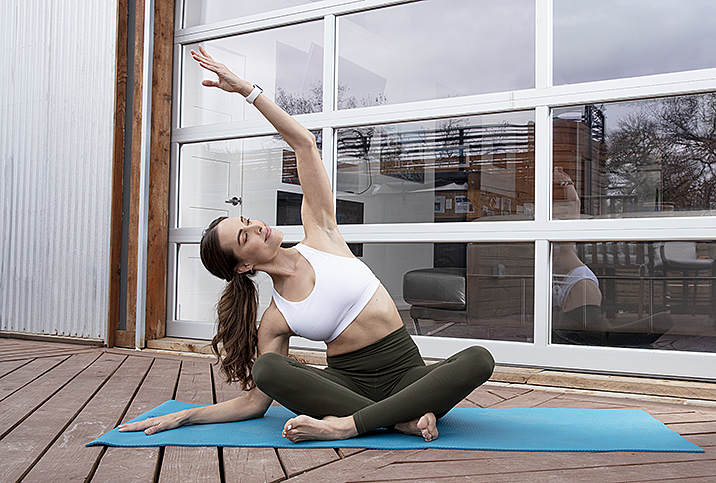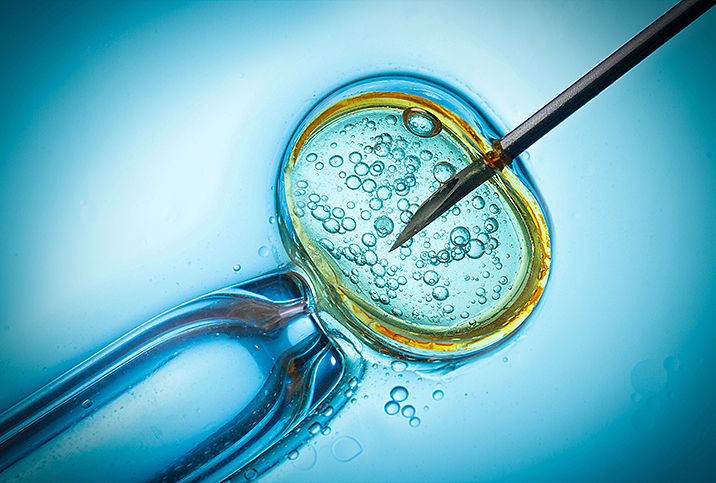Exercise (But Not Too Much) to Boost Fertility

Regular exercise is a vital component of living a healthy lifestyle and for boosting fertility. Most experts advise women to exercise moderately for at least 15 minutes per day to improve fertility, a recommendation that goes for men, as well, so be sure to include your partner in your physical activity goals.
Body weight has a direct influence on fertility for some couples. Weight extremes at both ends of the scale contribute to an estimated 30 percent of infertility cases; for example, obese women are three times more likely to face fertility challenges. Luckily, reducing body weight by just 5 percent can begin to reverse the negative impact of obesity. Combined with nutritious eating habits, working out is a proactive way to take control of your fertility.
Some other conditions associated with fertility issues, such as polycystic ovary syndrome (PCOS) or diabetes, may benefit from regular exercise, too. Ask your doctor about treatment options and exercise regimens that would best align with your overall health status.
Risks of overexercising
If you are undergoing in vitro fertilization (IVF) treatment, definitely consider the risks of overexercising. Studies conducted on women in their first round of treatment have found that exercising for four hours or more per week is associated with a higher rate of miscarriage, a greater chance of failed implantation and a 40 percent lower probability of a live birth.
Most available research suggests that the risks to fertility posed by overexercising are accompanied by the risks of malnutrition, undereating or other eating disorders. Long-term studies suggest that women who are underweight at age 18 take 25 percent longer to conceive than those who are at a normal weight at age 18. Although intense bouts of recent exercise may negatively affect fertility, the long-term consequences of overexercising combined with undereating seem to play a significant role in fertility, as well.
Exercise considerations during fertility treatments
Your doctor may recommend adjustments to your exercise habits during particular points in the IVF process, if you're actively undergoing fertility treatments. For instance, enlarged ovaries during the week of egg retrieval can put you at risk for ovarian torsion, a rare but serious condition.
So, if high-impact and long-duration workouts can be counterproductive during the treatment cycle, what should you do? Gentle exercises such as swimming, yoga, tai chi, walking and gardening are generally encouraged throughout IVF and pregnancy. Discuss your current activity level with your reproductive endocrinology and infertility (REI) physician for individualized recommendations.
Focus on the bigger picture
Too much exercise for one woman may not be enough for another. To arrive at the correct level of physical activity for you, it's essential to consider your weight and exercise history, along with your current nutritional habits. You should consult a professional trainer, a physical therapist or a nutritionist for more complete recommendations. And don't forget to check with your primary care physician; their knowledge of your complete history will help determine whether you have clearance for certain activities.
Exercise places the body in a transient high-stress state. While physical activity can be a healthy means to lower stress levels overall, too much exercise can put you in a fight-or-flight stress state, which some research has suggested may affect fertility.
If you're unable to conceive after a full year of trying, meet with a fertility specialist to review your overall lifestyle habits and any genetic or physical factors that may be contributing to the issue. You should also include your partner, who could have an underlying issue contributing to this outcome. Finding the level of exercise that enables you to maintain a healthy weight and keep your stress levels down will offer the best chances of a healthy pregnancy.


















